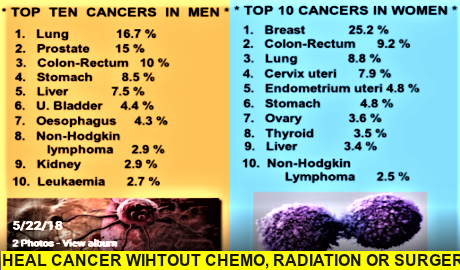Vitamin E or Alpha tocopherol, a powerful antioxidant, is an important fat soluble vitamin which plays a protective role for various body cells keeping them intact during different oxidative and degenerative processes. In this article you will find answers to commonly asked questions, like: What is the role of vitamin E in human body? What are the food sources of vitamin E? What is the daily requirement of vitamin E in children and in adults? What are the deficiency symptoms of vitamin E?
ROLE OF VITAMIN E IN THE BODY
• Immunity Enhancer: the antioxidant and immunity strengthening property of Vitamin E go hand in hand. Neutrophils, macrophages and lymphocytes are found to work with great efficiency under the adequate levels of Vitamin E.
• Anticancer Agent: Vitamin E is not curative for cancer but it definitely has a place as a preventive agent for cancer due to its anti-oxidizing property by forming a powerful barrier against the damaging oxidizing radicals as discussed above.
• Skin Nourishing Agent: Vitamin E is a regular ingredient of many skin creams, lotions and moisturizers. It not only protects the skin from environmental pollutants and UV radiation but also tones the skin by virtue of its useful properties like reducing (not removing!) wrinkles, hyper-pigmentation and scars.
WHO IS AT THE RISK OF DEVELOPING VITAMIN E DEFICIENCY?
• Patients with Cystic Fibrosis: Most common among Caucasians of North European descent, cystic fibrosis is a genetic disorder in which digestive enzymes fail to reach the intestine due to tubal blocks caused by thick mucus.
• Crohn’s Disease: A disorder causing inflammation of the terminal part of the small intestine, causing weight loss and diarrhea thereby causing multiple vitamin deficiencies.
• Chronic Pancreatitis: Inflammation of the pancreas which leads to decreased production of digestive enzymes required for the metabolism and absorption of fat soluble vitamins like A, D, E, and K.
• Chronic Liver Diseases: Chronic liver also leads to the reduced absorption of fat and fat soluble vitamins due to decreased production of the bile.
Other Miscellaneous Conditions:
• Genetic Vitamin E Deficiency Disorder: This is an inherited genetic disorder in which the protein which carries Vitamin E in the plasma is absent.
• Resection of Stomach or Intestine: When a part of stomach or intestine is removed by operation, there occurs deficiency of multiple nutritional factors including vitamins.
• Premature Low Birth Weight Babies: This is because the intestine of premature babies is not strong enough to absorb sufficient amounts of vitamin E.
DEFICIENCY SYMPTOMS OF VITAMIN E
All the symptoms of vitamin E deficiency are due to the effect of various oxidation processes in the cells that go unchecked in its absence.
• Neuromuscular Symptoms Complex: The varying degree of degeneration occurring in the nerve cells due to the lack of enough vitamin E gives rise to a variety of muscular disorders like: weakness, impaired balance, uncoordinated movements, tremors, weakness of eye muscles and other symptoms of ataxia.
• Peripheral Neuropathy: Various sensations like tingling, crawling, numbness in peripheral nerves of the limbs due to the poor transmission of the nerve signals.
• Rapid Progression of Alzheimer’s and Dementia: The protective role of vitamin E in these disorders is justified by the fact that patients who take vitamin E supplements show a very slow deterioration of cognitive function in this disorder, while those who do not take vitamin E, show rapid deterioration.
• Early Degeneration of Cardiovascular Disease: In the absence of protective antioxidant role of vitamin E, LDL lipoproteins undergo easy oxidation which is a crucial initiating step in promoting atherosclerosis.
• Degenerative Eye Conditions Like Retinopathy, Cataract and Macular Degeneration: In combination with vitamin A, C and omega-3-fatty acids, vitamin E provides a protective influence on the lens and the retina against various degenerative processes. Its deficiency is linked with a higher incidence of these disorders.
• Daily Requirements:
In health: 600 IU/day, less in children, more in breastfeeding mothers
Note: Cold-pressed vegetable oils are the best sources of vitamin E rather than heat or chemically extracted oils.It is observed that synthetic vitamin E (DL-alpha tocoferol is only 12% potent as that of its natural counterpart (D-alpha tocopherol)
Top Ten Sources of Vitamin E
Also read: Vitamin A, Vitamin B12, Vitamin C, Vitamin D
1. Whole: Rethinking the Science of Nutrition by T. Colin Campbell and Howard Jacobson
2. Superfoods: The Food and Medicine of the Future by David Wolfe
3. The Great American Health Hoax: The Surprising Truth About How Modern Medicine Keeps You Sick by Raymond Francis
4. Mayo Clinic A to Z Health Guide by Mayo Clinic (Authors)
5. I've Been Thinking . . .: Reflections, Prayers, and Meditations for a Meaningful Life by Maria Shriver
6. Genetics Isn't Everything: How to Make Your 'G-e-n-e-s' Fit You by Katherine S. Egan
7. How Not to Die: Discover the Foods Scientifically Proven to Prevent and Reverse Disease by Michael Greger M.D.



















































I just believe in taking a lot of fruits and vegetables which are natural sources of vitamins.
ReplyDeleteWe all are bothered about vit D and vit B. Noone considers this useful vitamin E. Great article :x :y (=) 5-p :-q
ReplyDelete